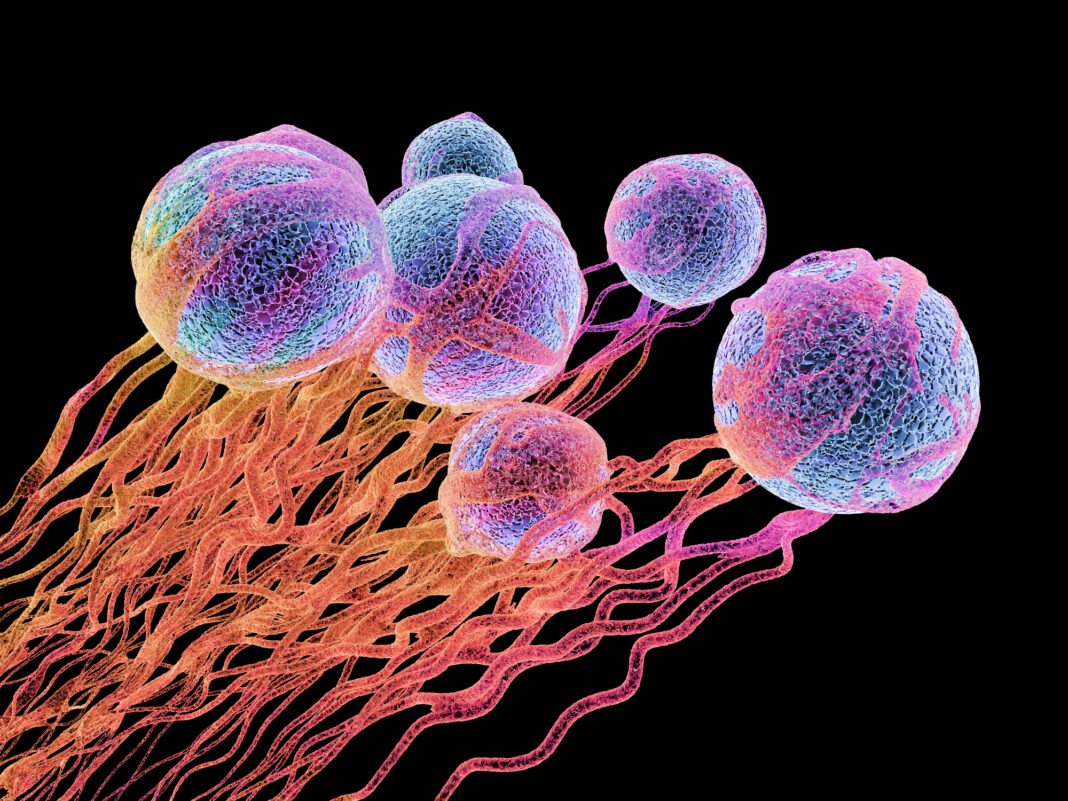A research team led by Haruka Wada, associate professor at Hokkaido University’s Institute for Genetic Medicine, examined the mechanisms by which cancer stem cells evade immune response in mice models. Their study showed that cancer stem cells induce senescence in macrophages.
The findings are published in the Journal for ImmunoTherapy of Cancer in an article titled, “Tumor cell-induced macrophage senescence plays a pivotal role in tumor initiation followed by stable growth in immunocompetent condition.”
“One of the biggest questions in the development of cancer is how cancer develops in individuals with a healthy immune system,” explained Wada. “The majority of studies on cancer stem cells have been carried out in vitro or in immunodeficient mice models, which do not account for a fully functioning immune response. The lack of effectiveness of cancer stem cell-targeting drugs indicates that the immune response or lack thereof is more important than previously considered.”
In mice models, the cancer stem cells suppressed the proliferation of macrophages. Further investigation showed that macrophages cultured with cancer stem cells exhibit senescence or cellular aging. The team identified interleukin 6 (IL-6) produced by cancer stem cells as the molecule responsible for triggering these effects.
The team also demonstrated that supplementing the mice inoculated with cancer stem cells with a molecule called nicotinamide mononucleotide resulted in the proliferation of non-senescent macrophages and reduced the immunosuppressive factors produced by senescent macrophages, preventing tumor growth and leading to increased survival times in mice.
“Our results indicate that drugs targeting senescent macrophages could be a treatment for cancer—an unprecedented development,” concluded Wada. “We believe that these drugs could be part of a treatment that prevents the new onset of tumors, as well as a therapy that prevents recurrence after cancer treatment.” Future work will focus on two avenues: confirming that this discovery holds true for cancers other than glioblastomas, and confirming that the findings apply to cancers in humans.


